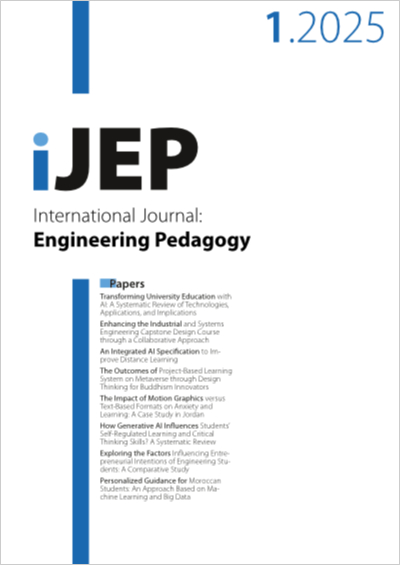How Generative AI Influences Students’ Self-Regulated Learning and Critical Thinking Skills? A Systematic Review
DOI:
https://doi.org/10.3991/ijep.v15i1.53379Keywords:
Artificial Intelligence (AI), ChatGPT, Self-Regulated Learning (SLR), Critical ThinkingAbstract
Generative artificial intelligence (AI), particularly tools such as ChatGPT, is transforming education by enhancing self-regulated learning (SRL) and critical thinking skills, two essential competencies in the digital era. This study systematically analyzes the impact of generative AI on these skills using the PRISMA (Preferred Reporting Items for Systematic Reviews and Meta-Analyses) framework to identify, evaluate, and synthesize relevant studies. Document searches were conducted in Scopus, Web of Science, and ScienceDirect, focusing on publications from 2022 to 2024, when ChatGPT was first widely adopted. Of the 3,214 documents identified, 557 met the initial screening criteria, and 38 studies were selected for detailed analysis. The findings reveal that 71.4% of studies reported AI’s positive role in SRL, mainly through personalized learning, metacognitive support, and adaptive feedback. Likewise, 62.5% of studies reported its significant role in critical thinking, supporting the process of analysis, evaluation, and reflection. However, researchers cautioned against an overreliance on technology, which one said could take away some students’ ability to think for themselves. Such findings indicate that educational institutions need to change their ways and include generative AI in a model that focuses on areas that foster learner independence. This approach will assist teachers and decision-makers in harnessing the distinctive kitsch of AI technology by creating new learning spaces that are creative and future-oriented.
Downloads
Published
How to Cite
Issue
Section
License
Copyright (c) 2024 Juli Sardi

This work is licensed under a Creative Commons Attribution 4.0 International License.



